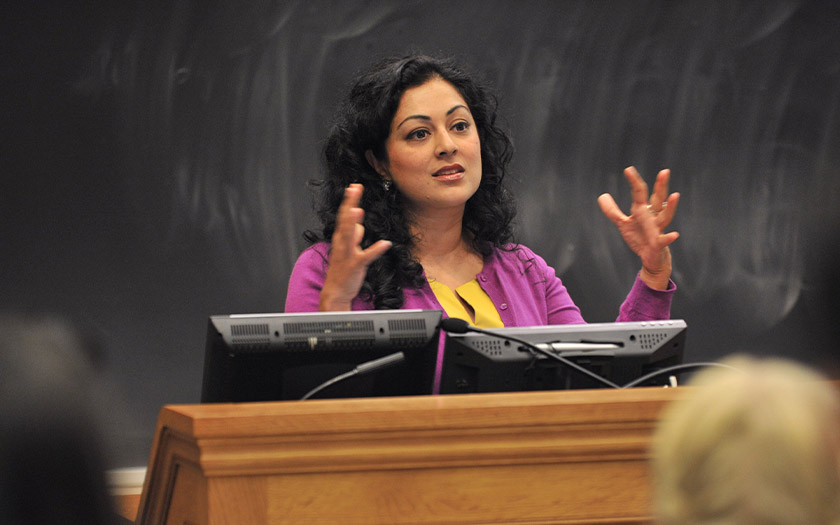
The politics of inclusive innovation in international development: Menstrual hygiene management and sanitary pads in India
Hosted by the Northwestern University Science in Human Culture Program
Speaker
Shobita ParthasarathyDate & time
Location

Join Northwestern University's Science in Human Culture Program for the Klopsteg Lecture, delivered by Shobita Parthasarathy, a professor of public policy and women's studies at the Ford School.
Abstract
International development institutions, governments, and social entrepreneurs have become increasingly enthusiastic about "inclusive innovation", which focuses on the development of technologies for and by the poor, to solve problems in low and middle-income countries. Inclusive innovation differs from previous development efforts by relying on market principles to achieve humanitarian ends, and focusing on lower tech devices. Proponents also argue that because the interventions are driven by the grassroots, they are more democratic and have enormous potential to catalyze economic, social, and political change. But what counts as inclusive innovation? How is it shaping the international development agenda? What are the implications for global efforts to promote technology for public good? This talk examines these questions through a case study of menstrual hygiene management (MHM) innovation in India. It demonstrates how, rather than providing solutions to self-evident development problems, inclusive innovation actually shapes both development problems and solutions simultaneously, in areas where scientific and market ways of knowing converge. These ways of knowing claim to be legitimate because they are rooted in local knowledge and expertise. MHM became a problem and low-cost disposable sanitary pads an inclusive innovative solution, in other words, because of the involvement of Indian researchers and innovators, and Indian girls and women as consumers and producers. However, in the process they reinforced narrow understandings of both inclusion and innovation in international development. These findings should stimulate those who are dedicated to ensuring that technology serves the public interest to consider how democratizing efforts are still wrapped up in a political economy that prioritizes scientific, technical, and market expertise, which limits their transformational power
Contact
Please contact the event host about this external event: Janet Hundrieser, (847) 491-3525, [email protected].